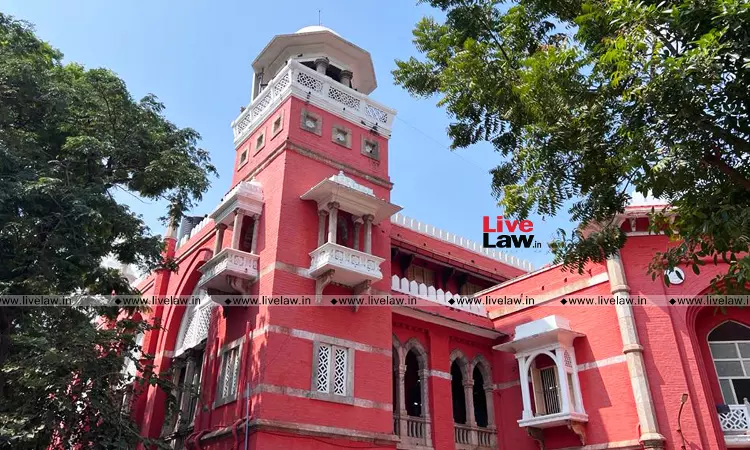State Should Conduct Itself In Transparent Manner, Not Show Bias In Public Employment: Madras High Court
Upasana Sajeev
17 Oct 2025 9:15 PM IST

The Madras High Court recently observed that State, as an employer, should conduct itself in a fair and transparent manner and give an opportunity to all candidates to fulfil their aspirations of securing a government job.
Justice T Vinod Kumar highlighted that the State should not show favouritism and bias in favour of any candidate by altering the records. Noting that the State had altered the records of the employment exchange to give employment to a candidate, the court opined that such employment could not be given the stamp of approval.
“The 2nd respondent being a State ought to conduct itself in a fair and transparent manner by affording opportunity to all the eligible candidates to fulfil aspirations of securing a Government job, instead of showing favouritism or bias in favour of any particular candidate by adopting modus operandi as resorted to by the 2nd respondent by altering the year of registration of the 4th respondent with employment exchange, advancing by an year, would only go to show that undue favouritism has been shown to the 4th respondent in getting him selected to the post of BT Assistant as against the eligible candidate including the petitioner,” the court said.
“Accordingly, this Court is of the view that the claim of the respondent of the selection process having been held in accordance with the procedure cannot be accepted as valid claim for it to receive stamp of approval from this Court,” the court added.
The court was hearing a petition by a woman alleging that she was not given employment despite her seniority in the Employment Exchange. The woman had submitted that she had acquired B.Ed degree in 1991 and registered herself with the employment exchange on 06.11.1992. She informed that as per the Government Order, any vacancy in the post of BT Assistant has to be filled up as per the employment exchange seniority.
She further submitted that when her turn for an appointment came, the teachers Recruitment Board selected another person instead of her, even though he had registered with the Employment Exchange on 26th April 1993.
She also informed the court that when she had moved a writ petition against the appointment in 2013, the respondents, in their counter, submitted that the appointed candidate was registered with the Employment Exchange on 26th April 1992, before the petitioner. Thus, in the writ petition, the TRB claimed that he was appointed since he was senior to the petitioner.
The petitioner further informed that on appeal, the Board had informed the bench that the petitioner had been selected as Graduate Assistant but she had not accepted the said appointment. The petitioner informed that the appeal was disposed off directing the authorities to verify whether the order of appointment was communicated to the petitioner.
In the present round of litigation, the petitioner argued that despite the order of the court, no such order had bene communicated to her. She also informed the court that on RTI inquiry, she was informed by the District Employment Exchange Officer that the appointed candidate had registered himself with the employment exchange on 26th April 1993 only. The petitioner thus argued that the Biard had manipulated the records to give employment to the candidate.
The respondents submitted that the candidate had been appointed only against the backlog vacancy notified by the Board, three years after sponsoring the petitioner, and that he was well within the ambit of selection of the cut off date for back log vacancy.
The court noted that though the candidate was within the ambit of selection, it would not, by itself confer any right to exclude the name of the petitioner, unless it was shown that she had been selected for some employment or on being offered employment, had rejected to take it up. The court also noted that as per the records, the selected candidate was junior in the seniority list.
The court held that the stand taken by the respondents to deny appointment to the petitioner was not genuine but invented to suit their convenience, which could not be countenanced. The court thus held that the employment process followed by the Board was not transparent and there was utter disregard to fairness.
“Thus, this Court has no hesitation to hold that the entire selection process followed to by the 2nd respondent in selecting the candidate for the post of BT Assistant, smacks of transparency and that the 2nd respondent had acted in utter disregard to the fairness which is required to be exhibited by 2nd respondent while dealing with public appointments,” the court said.
The court thus accepted the claim of the petitioner and directed the authorities to appoint the petitioner to the post of BT Assistant.
Counsel for Petitioner: Mr. V. Sivalingam for M/s. C. S. Associates
Counsel for Respondent: M/s. A. Bakkiyalakshmi, GA, Mr. C. Kathiravan, SC, M/s. V. Yamunadevi, Spl.GP
Case Title: T. Gangeswari v. The State and Others
Citation: 2025 LiveLaw (Mad) 363
Case No: W.P.No.15235 of 2019


